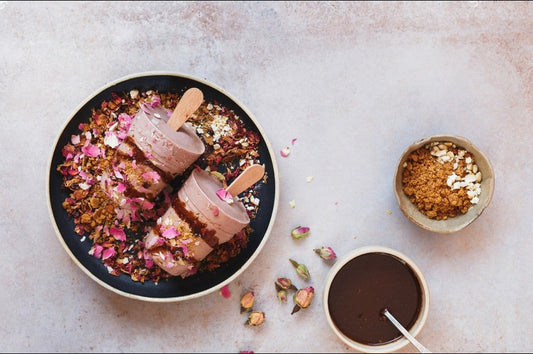
The Sweet Deception: Unveiling Hidden Sugars in Your Daily Diet
In today's fast-paced world, convenience often trumps nutrition. We grab quick meals, snack on the go, and quench our thirst with readily available beverages. But have you ever stopped to consider how much sugar you're really consuming? The answer might surprise you. Let's dive into the world of hidden sugars and explore how they sneak into our daily diets.
The Sugar Dilemma
Sugar, in its various forms, is omnipresent in our food supply. While we're all aware of the sweetness in desserts and candies, many of us are oblivious to the significant amounts of sugar lurking in seemingly innocent foods and drinks. From your morning coffee to your evening snack, sugar might be making more appearances in your diet than you realize.
Common Culprits: Meals and Main Dishes
You might think you're making healthy choices by opting for quick, pre-made meals, but these convenience foods often come with a sugary price tag. Here are some common meals and main dishes that might be secretly loading you up with sugar:
- Canned soups
- Breakfast cereals
- Premade freezer meals
- Instant oatmeal
- Smoothies
- Hamburger helper
- Canned pasta dishes
These items can vary greatly in their sugar content, so it's crucial to check the labels before purchasing. What you thought was a healthy, quick dinner might actually be a sugar bomb in disguise.
Sneaky Sides and Snacks
Even when we think we're making healthier choices with sides and snacks, sugar can still find its way onto our plates. Here are some common offenders:
- Granola: Some varieties can contain 12 or more grams of sugar per serving.
- Protein bars and granola bars: These can be particularly deceptive, with some containing a whopping 20 or more grams of sugar per serving.
- Canned fruit: Especially those preserved in syrup, can contain 16 or more grams of sugar per serving.
- Canned baked beans: A single can may contain as much as 20 grams of sugar.
- Dried fruit: While some of the sugar is naturally occurring, additional sugar is often added for flavor. A single serving can contain anywhere from 20 to 50 grams of sugar.
The Silent Sugar Surge: Condiments and Sauces
We often overlook the sugar content in the extras we add to our meals. These small additions can significantly increase our daily sugar intake:
- BBQ sauce: Around 6 grams of sugar per tablespoon
- Ketchup: 4 grams of sugar per tablespoon
- Salad dressing: 3-6 grams of sugar per serving
- Pasta sauce: Can contain 12 or more grams of sugar per serving
- Maple syrup: Around 14 grams of sugar per tablespoon
- Honey: 17 grams of sugar (fructose) per tablespoon
Remember, these measurements are often smaller than what we actually use. That dollop of BBQ sauce on your burger or the drizzle of maple syrup on your pancakes is likely more than just a tablespoon.
Liquid Sugar: The Beverage Breakdown
Drinks are perhaps the most insidious source of hidden sugars. We often don't register the sweetness in our beverages the same way we do in solid foods, making it easy to consume large amounts of sugar without realizing it. Here's a sobering look at the sugar content in some popular drinks:
- Coke: 39 grams of sugar per 12 oz can
- Mountain Dew: 46 grams of sugar in a 12 oz can
- Apple juice and orange juice: 24 grams of sugar per 8 oz glass
- Grape juice: 36 grams of sugar in an 8 oz glass
- Naked Mighty Mango Juice: 62 grams of sugar per bottle
- Premade iced tea: Around 35 grams of sugar per serving
- Coffee drinks: Can easily contain 40 or more grams of sugar per serving
- Chocolate milk: 24 or more grams of sugar per 8 oz serving
- Gatorade: 38 grams of sugar in a 20 oz bottle
- Vitaminwater: 30 grams of sugar per bottle
Even alcoholic beverages aren't exempt:
- Mojito: 23 grams of sugar per cocktail
- Margarita: Up to 45 grams of sugar per serving
The Dairy Dilemma
Dairy products, often perceived as healthy, can be surprising sources of sugar. While some of this comes from naturally occurring lactose, many dairy products have added sugars to enhance flavor:
- Yogurt: Particularly "low-fat" varieties can contain 45 or more grams of sugar per serving.
The Impact of Hidden Sugars
Consuming excessive amounts of sugar can have serious health implications. It can lead to weight gain, increase the risk of type 2 diabetes, contribute to tooth decay, and even impact heart health. Moreover, high sugar intake can lead to energy crashes and mood swings, affecting your daily productivity and overall well-being.
Taking Control: Strategies for Reducing Sugar Intake
- Read labels carefully: Pay attention to the sugar content in packaged foods and beverages.
- Choose whole foods: Opt for fresh fruits, vegetables, and whole grains instead of processed alternatives.
- Cook at home: This allows you to control the amount of sugar in your meals.
- Swap sugary drinks: Replace sodas and sweetened beverages with water, unsweetened tea, or sparkling water with a splash of fruit juice.
- Be mindful of condiments: Use herbs and spices to add flavor instead of relying on sugar-laden sauces.
- Choose unsweetened dairy: Opt for plain yogurt and add your own fresh fruits for flavor.
- Snack smart: Choose nuts, seeds, or fresh fruits instead of packaged snacks.
- Gradually reduce sugar: Your taste buds will adapt over time, making it easier to enjoy foods with less sugar.
The Sweet Truth
Understanding the prevalence of hidden sugars in our diets is the first step towards making healthier choices. By being aware of the sugar content in common foods and beverages, we can make informed decisions about what we consume.
Consider tracking your sugar intake for a few days or weeks. You might be surprised at how quickly those grams add up. Remember, the American Heart Association recommends limiting added sugars to no more than 36 grams per day for men and 25 grams per day for women.
By making small, consistent changes in our daily food choices, we can significantly reduce our sugar intake and improve our overall health. It's not about completely eliminating sugar from our diets, but rather about being mindful of our consumption and making informed choices.
The next time you reach for that convenient snack or refreshing drink, take a moment to consider its sugar content. Your body will thank you for it in the long run. After all, a little knowledge can go a long way in sweetening your health prospects without overloading on sugar.
Continue reading
View all-

The Twin Temptation: Bakers Frappe Powder for Your Cafe-at-Home Moments
Are you tired of spending a fortune at coffee shops to get that perfect frappe? What if you could recreate that creamy, smooth, and delicious experience right in your own...
The Twin Temptation: Bakers Frappe Powder for Your Cafe-at-Home Moments
Are you tired of spending a fortune at coffee shops to get that perfect frappe? What if you could recreate that creamy, smooth, and delicious experience right in your own...
-

Spice Up Your Plate: The Golden Touch of Puress Cold Pressed Mustard Oil!
Puress Cold Pressed Mustard Oil can transform a dish with its unique flavor profile. Try it now!
Spice Up Your Plate: The Golden Touch of Puress Cold Pressed Mustard Oil!
Puress Cold Pressed Mustard Oil can transform a dish with its unique flavor profile. Try it now!
-






